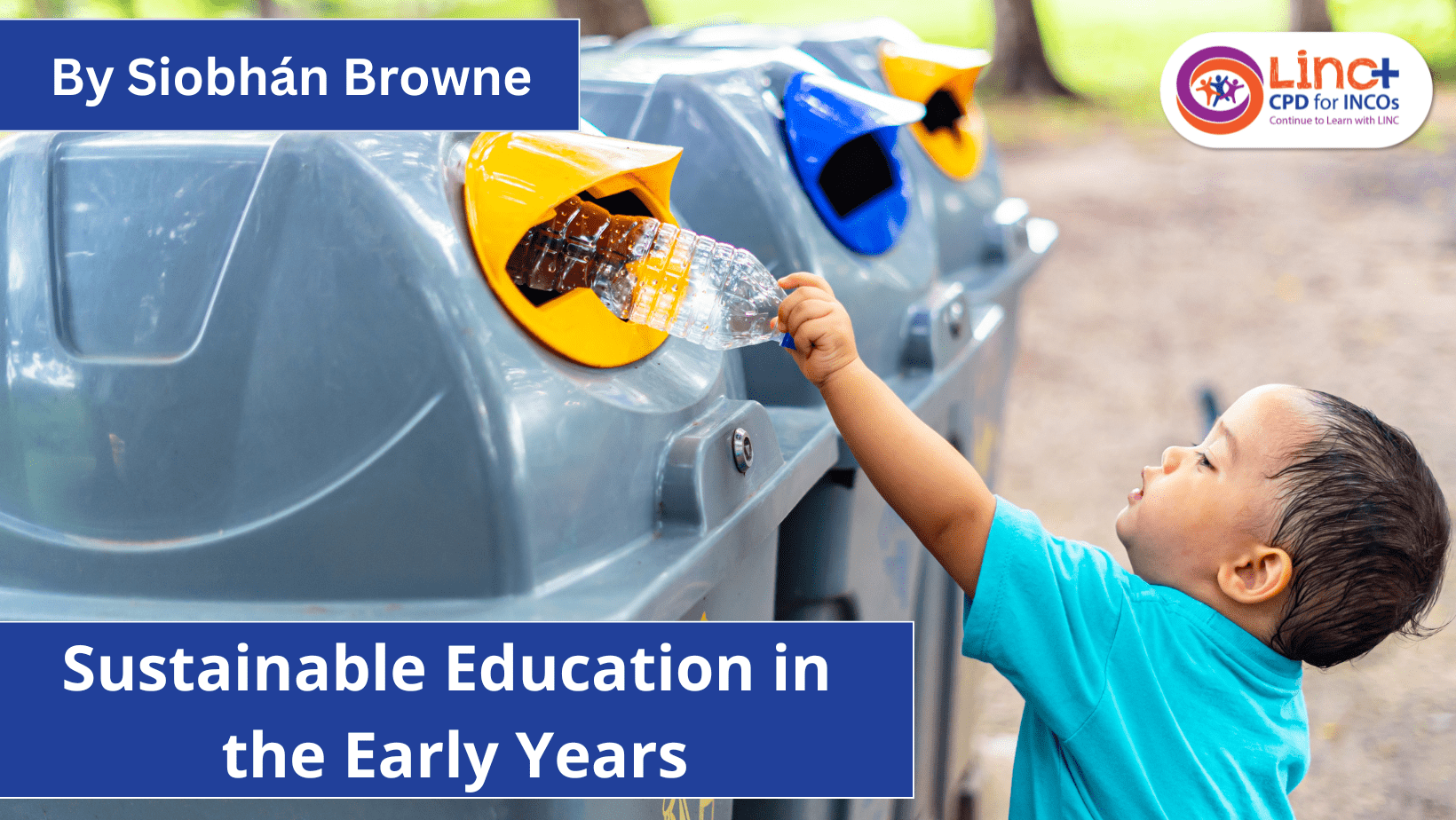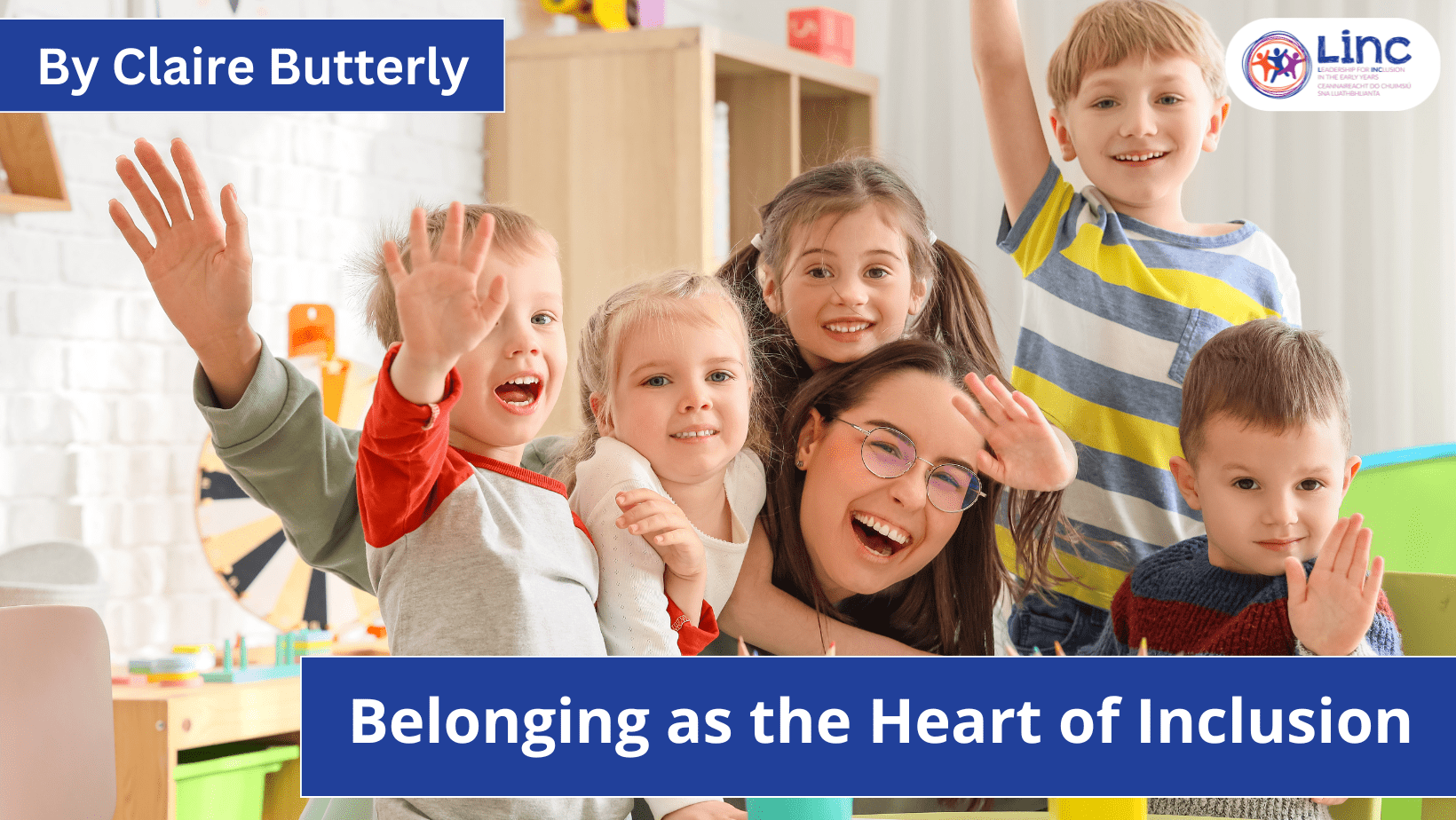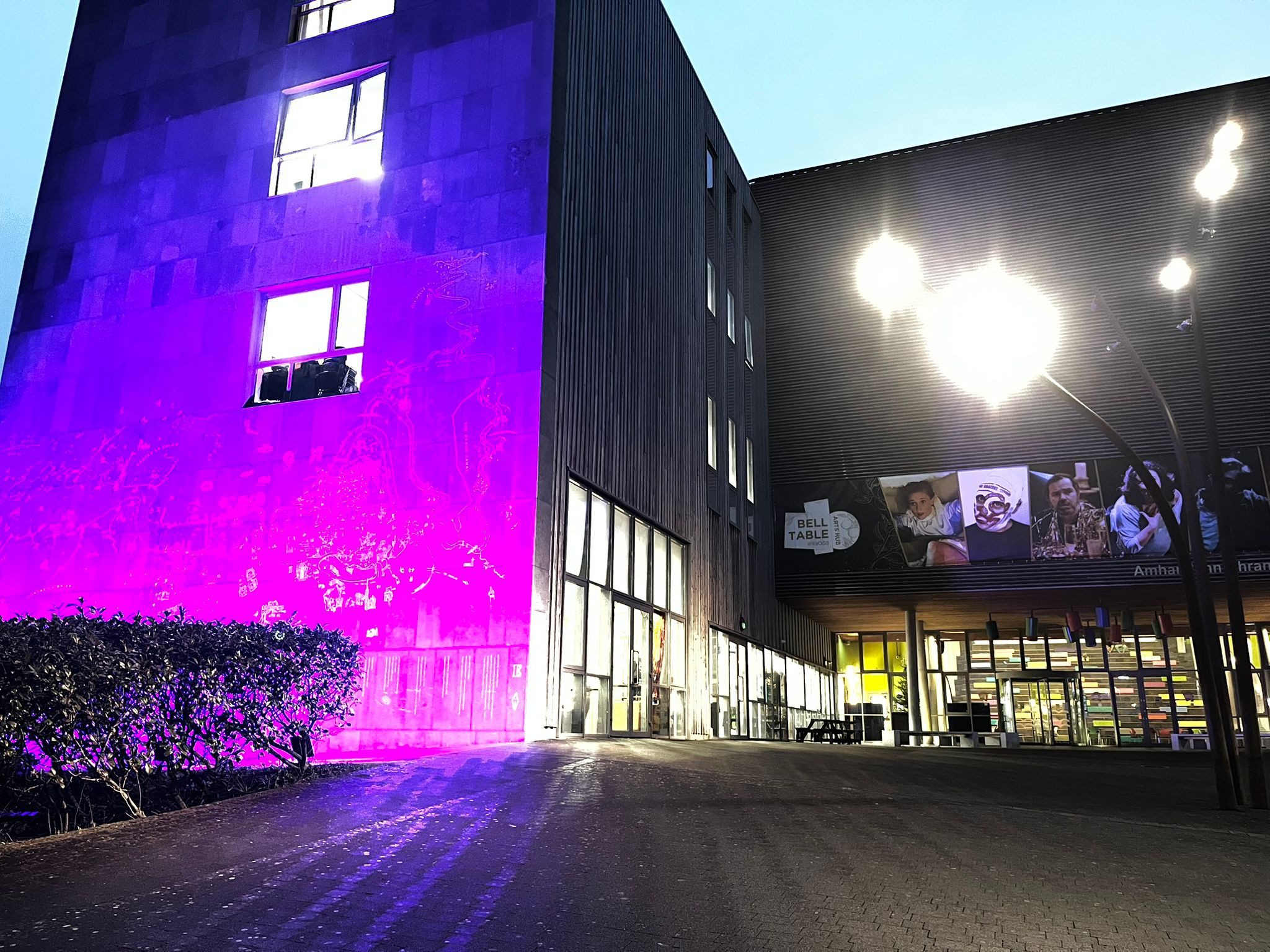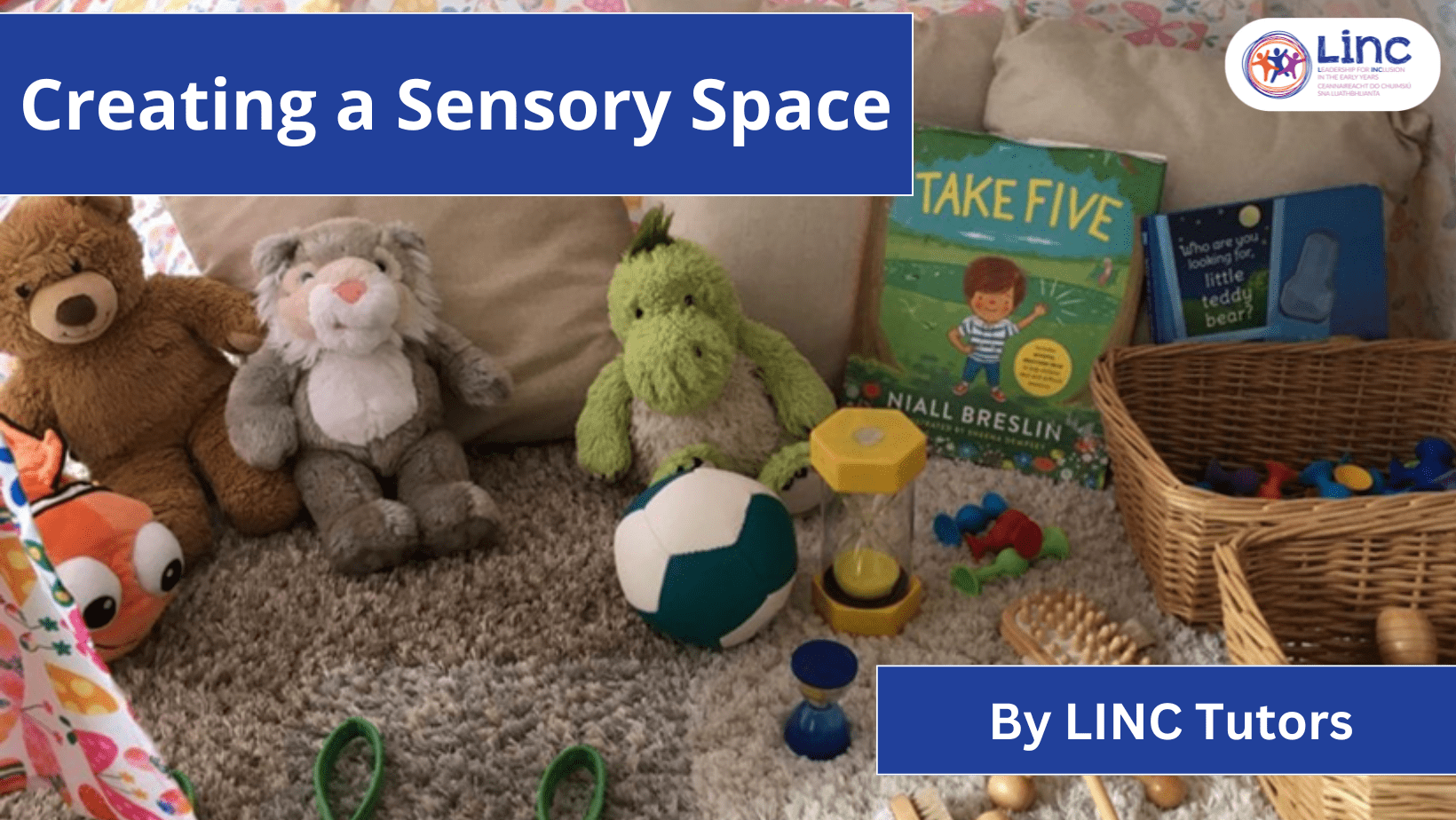Sustainable Education in the Early Years
In this edition of the LINC Blog, Siobhán Browne, LINC+ CPD Programme Participant and Manager at Jigsaw Day Nursery, discusses how she incorporates sustainable education into daily practices at her setting. She explains how children at Jigsaw participate in activities such as recycling, conserving water, and growing their own vegetables, helping them understand their role in caring for the environment. Siobhán emphasises the importance of starting environmental education early, highlighting how these practices foster empathy for living things and empower children to take responsibility for a more sustainable future.

At Jigsaw we try to weave sustainable education into our everyday practices, as the future is for the children, and we have a significant role to play in ensuring that future is bright. Children’s early years are a fundamental time to develop lifelong values (Boyd 2023). We can foster values such as empathy for all living things and promote an understanding of our role in caring for the environment. We are always looking at ways to reduce our carbon footprint, and recently invested in a more sustainable lighting system across both of our settings. We have moved the majority of our paperwork to digital to reduce the significant amount of paper we were previously using, and we often receive donations of paper and card from local businesses that would otherwise throw it out.
It is crucial that we provide children with information and education possible on climate change and its effects on our country and the world, so they can contribute to the solution and drive the necessary societal change. We model good practices such as switching off lights when we leave rooms or when they are not needed. We discuss with children why these actions are important, and we have also sourced child friendly books to emphasise the importance of being as eco-friendly as possible.
Aistear has emphasised the critical role that early childhood education plays in fostering the development of sustainable practices ever since it was first published in 2009. It elucidated an understanding of children as citizens with rights and obligations. Environmental protection and sustainable living were top priorities for the Framework (Farrell 2023).
We support children with washing their hands, using songs and pictures to support their learning, and demonstrating how we turn the taps off while we use the soap and only use a small amount of paper, just enough to dry our hands! To demonstrate why wipes should not be put in toilets, we conducted a simple experiment, a wipe was placed in a jar with water and the jar was shaken vigorously. The process was then repeated using toilet paper instead of the wipe, and the outcomes were compared. Simply put, the wipe won’t decompose like toilet paper. This simple process allowed the children to understand the significance of putting wipes in the toilet and they are now super careful with what they put down the toilets. An experiment that the children enjoyed engaging in, and led to many discussions and ideas around sustainability.
We use recycling, waste, and compost bins throughout our setting, and we chat with the children about what items go in each bin. We use pictures of commonly used items in the nursery and attach them to the bins. In no time the children are teaching each other about which bins they should use. They take ownership of their environment and support newer children to do the same. We discourage plastic water bottles and instead ask that all children have a reusable water bottle. We also encourage using reusable lunchboxes and avoiding plastic sandwich bags, tinfoil or cling film. Watching the children take ownership of their environment and advise each other on which bin to use or to turn the taps off is really rewarding. It is crucial to begin engaging children about environmental protection at a young age. Children are more likely to feel empowered to take action for a better future if we include them in this conversation in their early years (Hayden, 2023). Of course, we work in partnership with parents on our sustainability vision!
In our setting, the children now grow their own potatoes and herbs in our gardens and plant flowers which they look after themselves. This has been our most recent venture in sustainable education with the children and it has proven to be very successful. The children were delighted when the potatoes were ready, and they dug them up themselves. We then use the produce in baking activities with the children. What fun they had!
By involving children in a meaningful way and recognising their ability to understand the importance of sustainable practices, we encourage them to develop their own ideas and to spread their ideas at home and in their communities. By offering resources and provocations that allow the children to investigate, debate, negotiate, and find solutions to their own innate curiosity about the world they live in, we as educators can support and scaffold children’s learning.
Siobhán Browne
LINC+ CPD Programme Participant, INCO
Setting: Jigsaw Day Nursery, Clonmel, Co. Tipperary.
Role: Manager
Experience: Over 16 years at Jigsaw, with a focus on teaching early years programmes since 2019 and contributing to programme and module development since 2021.
Qualifications: LINC 2023 and LINC+ CPD 2024; M.A. in Child, Youth, and Family Studies; H.Dip in Early Childhood Studies, Care and Education; B.A. in Psychology and Sociology.
You may also like:

Belonging as the Heart of Inclusion
Belonging as the Heart of Inclusion In this edition of the LINC Blog, LINC National Coordinator Claire Butterly reflects on belonging as the heart of inclusive practice in Early Learning and Care and School-Age Childcare settings. Drawing on the principles of Aistear,...

LINC Shines a Light on Inclusion for the International Day of Persons with Disabilities 2025
LINC Shines a Light on Inclusion for the International Day of Persons with Disabilities 2025 The Leadership for INClusion in the Early Years (LINC) Programme marked the United Nations International Day of Persons with Disabilities (IDPD) this evening by illuminating...

Creating a Sensory Space
Creating a Sensory Space In this edition of the LINC blog, Claire Butterly, Karina Abbott, Ann Donnellan, Carole Dee, Linda Madden, Margaret Joyce and Paula Harte highlight some considerations when planning a sensory space in your Early Learning and Care setting....
